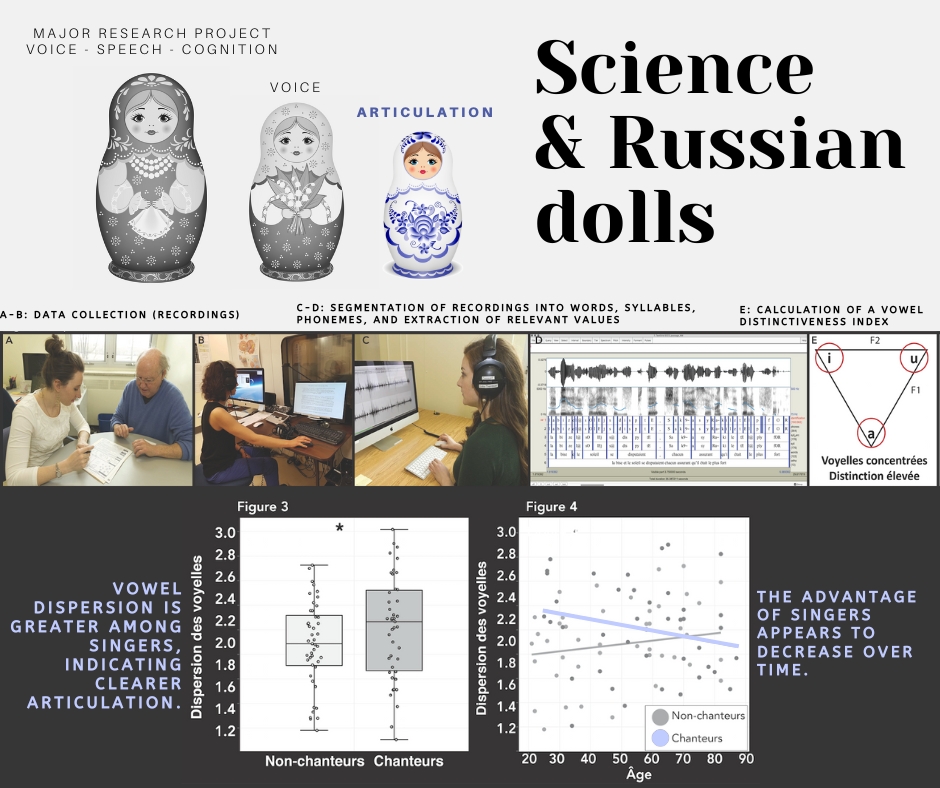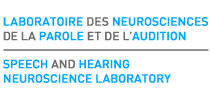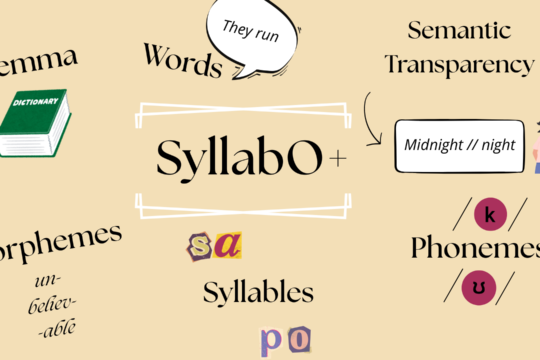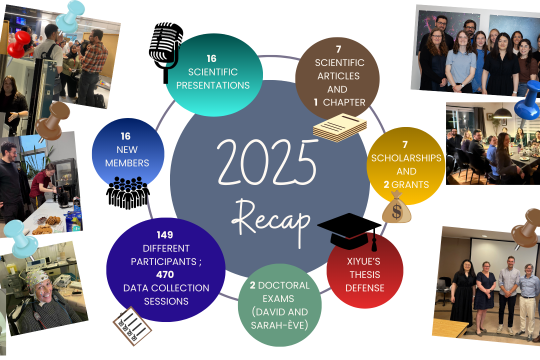
The laboratory embarked on a major research project in 2017, aiming to clarify the effects of choral singing—a pastime enjoyed by more than 500,000 Quebecers—on voice, speech, and cognition, and to identify the underlying neurological mechanisms.
The complexity of the project stems not only from its scale—152 participants were recruited—but also from the variety of tasks performed by the participants to study different aspects of speech production and perception. This large project includes several sub-projects to consolidate analyses and results, like a set of Russian nesting dolls!
In one of these sub-projects, speech intelligibility was evaluated through acoustic analysis of vowel articulation during text reading. Was the pronunciation of vowels clear when participants read a text? Does singing improve speech intelligibility? This sub-project is led by a team comprising Pascale Tremblay, the laboratory director; our international collaborator Anna Marczyk, a phonetician; Johanna-Pascale Roy, our local phonetician collaborator; and Josée Vaillancourt, a choral singing expert! Many students from the laboratory are also heavily involved: Émilie Belley, Benjamin Côté, and Catherine Savard.
Anna developed the methodology to analyze the participants’ recordings and extract an index representing vowel distinctiveness. The clearer and more distinct the vowels are, the easier it is to understand speech. So far, analyses have been conducted on 88 participants (45 non-singers and 43 singers). Our results show that choral singing is associated with clearer articulation, but this advantage seems to diminish over time. These findings add to the results reported in a recent meta-analysis by our team (Zumbansen & Tremblay, 2018), suggesting that people with aphasia and articulatory difficulties might benefit from choral singing. Thus, choral singing could improve articulatory quality in both normal and pathological aging.
Two students from our lab, Émilie and Benjamin, presented these results for the first time at the CERVO Research Centre‘s Scientific Day. They won the first prize in their category (undergraduate). Congratulations! For more information, download the full poster in the box at the bottom of this article.
What’s next? We are working to complete the analyses for all project participants and aim to analyze consonant intelligibility as well to gain a more comprehensive picture of the effects of aging and amateur singing on articulatory quality. Ultimately, these data will be correlated with the participants’ brain structure to better understand the neurobiological basis of aging speech production.
Suggested readings :
- A forest of neurons
- Alexandre’s study presented at the Scientific Day of the Quebec Bio-Imaging Network (QBIN)
- Can musical practice improve listening to conversations in noise?
- Difference between speech, language and communication
- Inducing plasticity
- New scientific article about the impact of singing on articulation
- New Scientific Article on the Impact of Singing on Brain Networks
- Science and Russian dolls—Even more figurines
- Science and Russian dolls—The follow-up
- Scientific Article on the Benefits of Choral Singing
- Speech analysis
- Speech perception: a complex ability
- The profession of speech-language pathologist
- What is a linguist?



